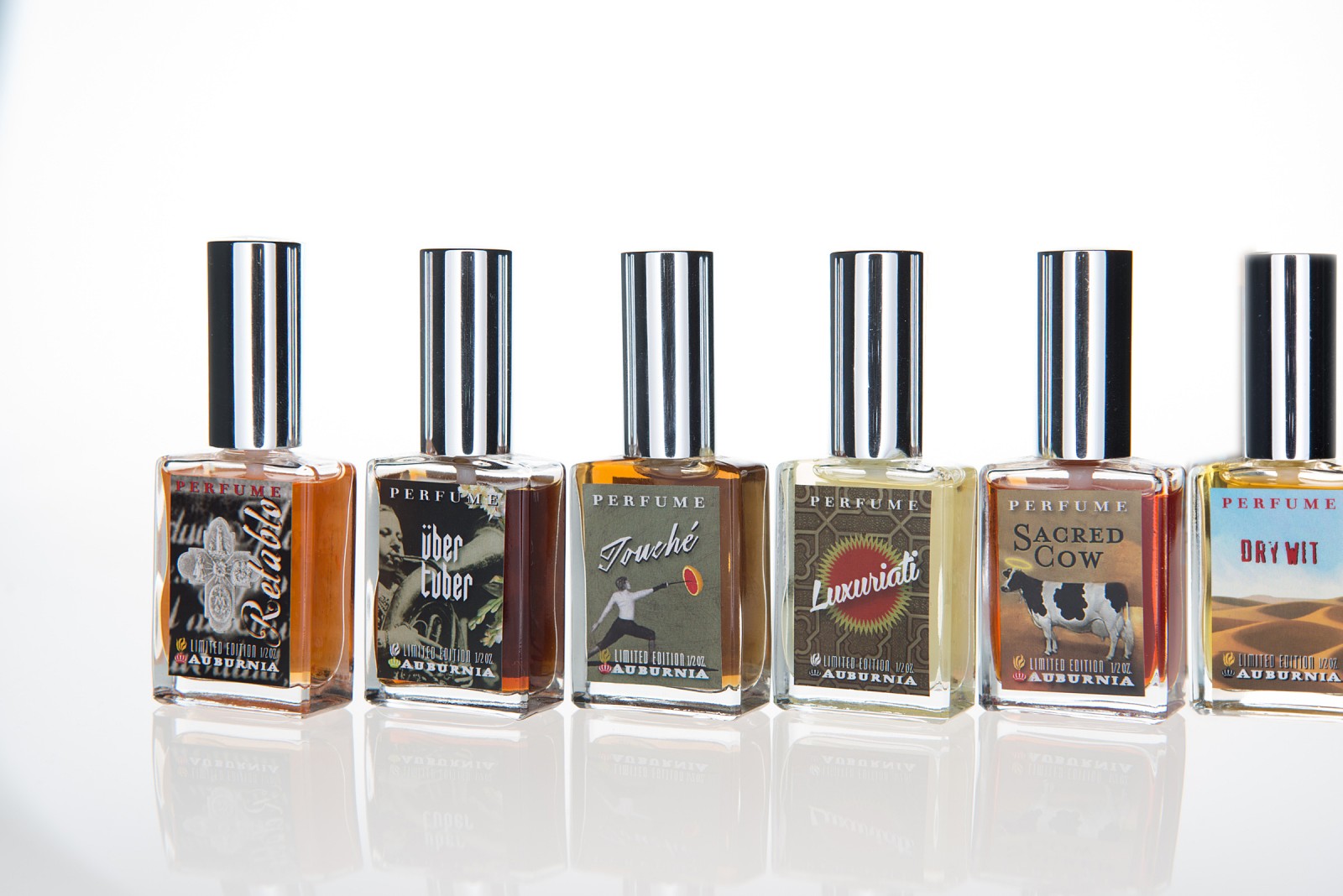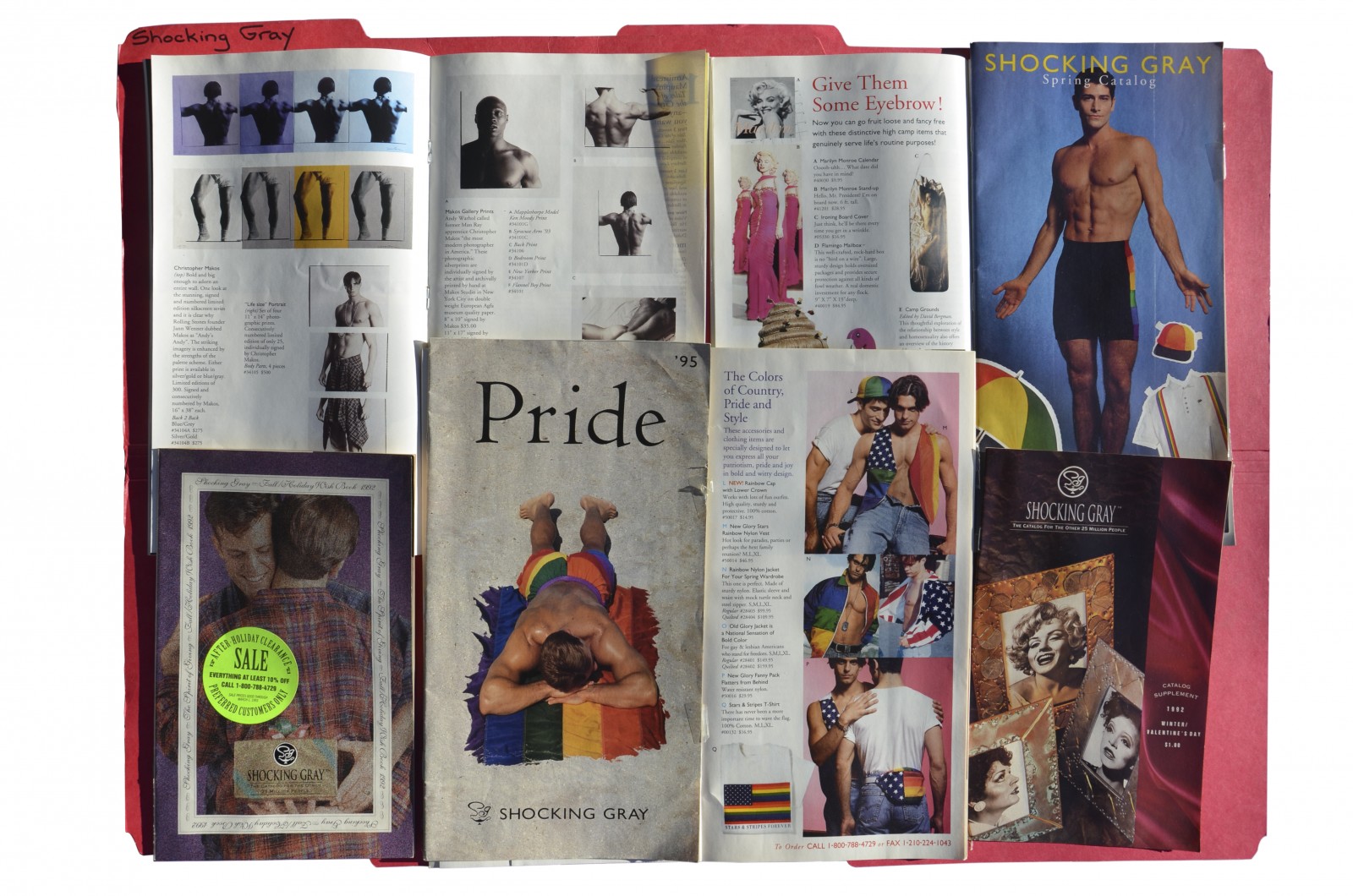Gene: Michelle, how nice to see you again. You are looking great as always. Thanks for joining me on the Chartreuse Couch, “my own private Alamo.” We have known each other for many years now. I even remember Shocking Gray. And this was before there were 50 shades. Who knew? I do want to talk about all the progress we have made in the GayBLT community. But first let’s talk about your business interests. What are you doing?
Michelle: Hi Gene. As usual, I have many irons in the fire. I am still involved with my first love: Wilby Creative … graphic design and illustration. After all these years, I still enjoy developing logos, websites, packaging and all sorts of print collateral for clients. I was doing a lot of editorial illustration until a couple of years ago, but with the demise of many print publications, I have shifted my focus back to graphic design.
Gene: And fine art?
Michelle: I am also doing fine art … channeling my illustration energy into creating digital fine art and some oil painting. [For the] group show, “Retro-Progressive” at R Gallery, [I showed] three pieces from my series, There Goes the Neighborhood. Tongue-and-cheek observations/commentary on life in suburbia. I’m hoping to get an art grant to complete the series. I’d be happy to show you some of my artwork.
Gene: Well, that’s good to hear. I like political art as you know. And how are you commenting on suburbia?
Michelle: “The ’burbs are boring” is the general cliché. But if you look beyond the homogenous environment, there are rich undertones of uniqueness, and a sardonic humor in the uniformity. By nature, suburban neighborhoods strive for conformity, in this effort there’s bound to be conflict and irony … And that’s where I find what’s amusing. It’s in my nature to observe, document and visually comment on this phenomena in a drolly humorous fashion.
Gene: And when we last spoke, you had some perfume ideas. What has happened with that?
Michelle: About 10 years ago, I started making perfume … took some coursework in New York City and on the West Coast and built a lab into my house. (At first, I’m sure the neighbors thought I was cooking meth.) It’s an expensive hobby … so to recoup my investment, I designed packaging, bottled it and now it’s a micro-business. Kathleen Sommers carries several of my fragrances. I also have some apothecary-type products that I’ve developed — also available at Kathleen Sommers. I’m working on a website as we speak. I’d be happy to show you my products and/or my studio/lab.
Gene: Are any of these fragrances for men?
Michelle: Yes. I have several perfumes that men wear. All my perfumes, with the possible exception of the florals, I think of as unisex.
Gene: I don’t think men wear perfumes. We wear odors.
Michelle: Real men wear perfume. Cologne is just a less concentrated form of perfume. Men may use less if they so desire.
Gene: And what else?
Michelle: In my spare time, I have been working on a series of children’s picture books, based on a young girl squirrel … writing and illustrating them. When they’re ripe, I’m hoping I’ll be able to find a publisher. I’d be happy to show you a comp of one of the books as well.
Gene: I adore children’s books.
Michelle: I’m very fortunate to be able to generate some income from doing things I love to do. And even if I could, I have no plans to retire … ever.
Gene: I think Robert Motherwell said that what he wanted written on his tombstone was, “I drew my last breath.” Well, back to Shocking Gray. That was a really great time in San Antonio for the gay community; enlighten those who don’t know about that.
Michelle: Well, yes … there were some good old days, but some difficult days as well. In the late ’80s/early ’90s, San Antonio didn’t have a large “out and proud” LGBT community as we do now — as a matter of fact, many if not most LGBT persons were living fairly closeted lives — at least with their families, or at work and/or within the larger community … “Don’t Ask Don’t Tell” was being tossed about in Washington as a way of dealing with “the gay problem” in the military. And San Antonio, being a major military city, routinely saw MPs from the various military bases combing the many gay bars and dragging out patrons who had a military ID.
Gene: Some observant commentator described “Don’t Ask Don’t Tell” as the policy when someone farts in the elevator.
Michelle: And the AIDS epidemic was clearly taking its toll in our gay community. Many organizations and activist groups grew out of this period to address and deal with the many serious issues affecting the lesbian and gay community. Shocking Gray originated in this environment.
Gene: I hope our young gay activists are taking notes.
Michelle: At that time, there weren’t any existing demographics that showed the purchasing power of the gay community … but it was obvious to anyone in the gay community that if you recognized, accepted and welcomed the gay community, you would engender a tremendous amount of support and loyalty. Like I said, at the time, it was obvious to me and a few others, but to most businesspeople it was a completely novel targeted marketing model. I, and a business partner came up with the idea of doing a catalog business, that would sell merchandise by targeting the gay community on a national scale. Shocking Gray was born.
Gene: Also at that time one of the topics of discussion was how much money the gay community had and how much they spent. What was our purchasing power? And of course no one really knew. It had not been explored or thought about.
Michelle: We found additional partners to provide more needed capital — printing and mailing a couple of million catalogs each quarter is expensive. We had a fulfillment facility where we procured, warehoused and shipped a varied merchandise mix of products (cool art, clothing, books, travel accessories, gay kitsch, etc.), designed the catalog and had friendly telemarketers who took orders — remember this was before the internet. We mailed out catalogs, and received orders from all over the globe. We were noticed by the media in almost every major city in the country — and a couple in Europe too, and did interviews in major business publications … I was personally quoted in The Wall Street Journal as an “expert” in vertical marketing. And we even received a request from the Library of Congress for copies of our catalog. We grew quickly. It was an exciting time.
Gene: I have a file of Shocking Gray at the HAPPY Archives, which is why I know so much about everything.
Michelle: I would like to see it sometime. The business was not without its difficulties indigenous to a gay business during this time … I had not really personally experienced overt discrimination until Shocking Gray. I recall having a meeting with a leasing agent for a warehouse … The meeting took place in a conference room at my design studio … (I was still trying to maintain a design business for the first few months.) In the meeting was me, my two business partners, a couple of my employees, and the leasing agent. He had read the business plan with the owners of the warehouse and they told us that they would not lease the building to us. He said, “I know this is going to sound crazy, but the owners think y’all are going to have a bunch of gay people running around the warehouse.” All of us looked at the agent, stood up and responded in an angry chorus, “We’re all gay here. No doubt we’ll be ‘running around’ in the warehouse.”
Gene: Oh my God! That is the best quote yet. You should put that on T-shirts. That should be our own San Antonio battle cry like “Remember the Alamo.” See what comes out on the Chartreuse Couch!
Michelle: There were many instances of printers refusing to print our catalog. It was an eye-opener to realize there wasn’t a large printing company in Texas that was willing to print our catalog. I had been doing business with some of these companies for years. It’s difficult to say which fomented more disgust with some of the companies we approached … the fact that we were an openly gay company or that are target audience was the gay community — probably both.
Gene: Both. And basic homophobia. Printing gay catalogs meant you were queer too. I have to ask, were any of those printing companies run by gay people?
Michelle: No … but a couple of the print reps I worked with were gay … but closeted at work. A printing company president’s son came out to him when he saw our catalog … I heard via the print rep that it was a very unpleasant situation which may have contributed to the company president refusing to rectify the situation that developed that I’ll tell you about next.
Gene: Oh good! Guilt creeps into the suburbs.
Michelle: We had to go all over the country seeking a printer, and ended up in Kennebunkport, Maine. That should have been a huge red flag, but we were desperate to find a printer that had the capability to print the catalog quantity we needed. This is where some employee(s) in their in-house postal facility inserted slips of paper with hate-filled messages like “Die Faggot” and “Fuck You Lesbians” into freshly printed catalogs then mailed thousands of them up and down the East Coast. Our phones rang off the hook with upset customers. And the printer refused to take any responsibility whatsoever.
Gene: Shocking!
Michelle: We were not able to get a merchant agreement initially because we were a gay company — this meant we couldn’t accept credit cards — this was a big deal … How do you have a national catalog business without the ability to accept credit cards? We sent our phone customers merchandise and trusted that they would send us checks — after they received merchandise. And they did — the gay community was loyal, trustworthy and supportive. We were the first company to show two women holding hands, and two men and their kids … all displaying Shocking Gray merchandise of course. It felt good to show lesbians and gays in everyday, even benign settings — which was particularly shocking, even provocative to an ignorant straight community. My God, today — 25 years later, even the Campbell Soup Company is getting blow-back for showing two fathers feeding soup to their child in an ad. In any case, a gay businessman in New York in the credit card business heard about our credit card plight and helped facilitate us getting a merchant agreement.
Gene: You know this information is so important. I’m glad we can document this here and now.
Michelle: We could not get group health insurance because we had so many employees with AIDS — at the time, having AIDS pretty much guaranteed that you’d never find a job. We were even willing to pay high risk pool rates….but all the insurance companies refused to allow us to buy insurance from them.
Gene: How long did Shocking Gray last?
Michelle: I left the company about two years before they went under. There were many factors that led to its demise, most of which were self-inflicted wounds, and I was not privy to details, but fundamentally — the bottom line was, as “gay” became more mainstream, and recognized as a legitimate consumer demographic, the need for a company like Shocking Gray became less apparent.
Gene: Well, someone bought the business that didn’t know how to run it and then it went down hill. Don’t you remember that?
Michelle: As I remember events, the company tried to raise additional capital from an individual who, as part of some deal, wanted to have a role in the company. I’m not at all sure what role that was … If there were “new owner(s)” I don’t think they were exclusively to blame in the company’s demise. Existing incompetent management led to Shocking Gray’s filing for bankruptcy. After the bankruptcy, the IRS was also seeking tens of thousands of dollars in unpaid payroll tax from the folks that were managing the company when it came to an end — and it wasn’t the “new owner” the IRS was seeking. I was owed a considerable sum of money by Shocking Gray when the company filed for bankruptcy. I was not able to collect even one dime. Many people were hurt when the company went under. So, in retrospect the company was a huge financial flop on the one hand, and a huge success in helping to define the gay market on the other hand.
Gene: Well, it was important. There were many lessons to learn from that.
Michelle: It was empowering to be an openly gay business seeking gay business. I was always surprised when people expressed astonishment — because of it’s concept, scale and scope — that Shocking Gray originated in San Antonio. People thought we must be out of New York or San Francisco. It was as if many folks thought that a cutting-edge gay business could have only existed in major urban areas. It was true then, as it is obvious now: We are everywhere. Shocking Gray was a wild ride.
Gene: Yes, I remember that. You know I answered phones at Shocking Gray for a time. These are really amazing stories. We should write a play based on this and other Texas tales.
Michelle: That’s right! I remember your handsome face grinning and flirting with phone customers. How could I forget customers calling and not wanting to place an order unless it was with you.
Gene: Oh, how you go on! It was fun. I enjoyed being a part of that very liberating contribution to San Antonio and the world. Well, let’s dish Trinity University now. We both attended, I in art and you in music. It has taken Trinity a long time to come to terms with their gay graduates. Why don’t you start at the beginning and give your impressions of Trinity.
Michelle: Trinity University … So they have come to terms with their gay graduates? I wasn’t aware that we were even visible as LGBT alumni. There are plenty of us around though. I loved my student days at Trinity, but in the late ’70s, it was a pretty homophobic environment — I recall a couple of nasty little witch hunts, rumors and innuendo coursing around campus. I came out anyway several years after I graduated. I stayed close friends with my piano professor, Andrew Mihalso, for many years until he passed away a few years ago … he was my only real support system for a time after I came out. A couple of years ago I was a Trinity University Stieren Arts Lecturer in design. And Trinity University was actually one of my major design clients on and off for many years. I have been asked a couple of times over the years by Sammye Johnson, who was the chairperson of the communications department, to discuss the marketing and business aspects of Shocking Gray with a few of her students. I believe that LGBT students today … millennials … have less homophobic angst and fewer issues of discrimination to deal with — which is really great! Our collective activism over the years has helped in part to pave the way … It’s our legacy, no?
Gene: Yes, you and others are responsible for any change at Trinity. I recently attended the reception for the new president, Danny Anderson, at the McNay and spoke to him briefly, giving my suggestion. Which was that he needed to round up all the alumni that graduated from the art department and use them. We are an untapped resource and Trinity has never taken advantage or been interested in the creative people it educated. And it is true, Trinity has basically treated its artists the same way it treated its gay students and graduates. Ignore them. Don’t you agree?
Michelle: Like other small, private universities with a religious affiliation, I am pretty sure that Trinity doesn’t really consider LGBT graduates a resource. And I’m not sure that any university values artistic contributions of its graduates to the extent that it should. The liberal arts have become the whipping boy for academic achievement … especially with right-wing politicians. Trinity’s new focus is on STEM (Science, Technology, Engineering and Mathematics). STEM graduates will find good paying jobs … and a few will go on to make valuable contributions in the realm of their respective areas of study. This is a good thing considering there is a general societal trend to discount science as well — much in the same way the arts have been discounted. Hell, let’s face it, there is a general societal trend to discount education. Period. However, the “arts” have always been an inferior major in the minds of folks who patently do not understand how society would be disastrously different if “art” didn’t exist. My own family wasn’t thrilled with my choice of music as a major … They were horrified when, in my senior year, I announced that I wanted to add art as a major while already having enough hours to graduate in music and sociology. I couldn’t afford another year, so I didn’t. Choosing the “arts” as a career is not the easiest path to financial success, but I’ve done okay … and it is what I’m driven to do … and it’s really too late to go to law school. Now when I meet an art/music/philosophy/English major, I assume they must have access to a family trust fund … or (more likely) are quite brilliant, well-rounded, articulate individuals, with a profound depth of compassion, good sense of humor, and an ability to easily communicate with others. LMAO!
Gene: LMAO?
Michelle: Laughing my ass off.
Gene: Oh, gosh! This alphabet stuff I never get. Well, have you ever seen a UFO?
Michelle: I don’t think so, but I swear I have known a couple of aliens.
Gene: I am advocating that we make contact; and business contacts with aliens that like art so we can start selling them some of our art. I know they’ll love it. So what about HRC and GLAAD and books and movies. Where do you weigh in on political groups like Stonewall and Log Cabin and Jesus. Let’s go there.
Michelle: I have always felt that all political groups like HRC, GLAAD, Equality Texas, Stonewall Democrats and Log Cabin Republicans and many others, should have a voice in changing laws, policy and attitudes towards and within the LGBT community. I think everyone wants the same thing … equal rights and societal acceptance. Different organizations have different strategies in achieving this goal and some have experienced greater success than others. But all of these groups are necessary as they all reflect the wide spectrum of “gay” opinion. Back in the day, Queer Nation and ACT UP were essential organizations in combatting the AIDS epidemic within the gay community … a semi-militant approach was necessary then (in my opinion), and these types of groups flourished. Present day HRC has evolved into one of the most powerful lobby groups in the country and has been particularly effective in changing the hearts and minds of many nationally elected officials. And Lambda Legal Defense and others have battled for civil rights for the LGBT community all the way to the Supreme Court. I personally believe that as more people come out, the more mainstream being gay will be. We’re already seeing more and more mainstream product commercials being hawked by gay characters in real life settings (Ikea, Campbell’s, etc.), not to mention a proliferation of books and movies where lesbian and gay characters are the protagonists and/or have major supportive roles — and are portrayed as real people — not just in a stereotypic fashion. As more celebrities, politicians, CEOs and ordinary folk claim their voice in the LGBT community, things are going to evolve even further. When someone is the first elected LGBT U.S. President, or better yet, a few members of the LGBT community are the accepted head pastors of evangelical mega-churches, you’ll know we’ve achieved mainstream status. Ha ha. The former could happen in our life-time … the latter not so much.
Gene: And books? What have you read?
Michelle: I pretty much stick to nonfiction. Right now, I am reading Griftopia by Matt Taibbi and Mandy Aftel’s latest, Fragrant: The Secret Life of Scent. As for magazines I regularly read The New Yorker. I’m pretty much a news junkie and watch most cable news channels. As a matter of fact, I’ll frequently sketch and do caricatures of talking heads and politicians while watching the news. Recently, I completed a series of digital portraits of the GOP presidential clowns.
Gene: And what films would you recommend to our audience?
Michelle: Oh geez, I have so many favorites, but basically anything with Meryl Streep, Judy Dench, and/or Julianne Moore … or any movie scored by Thomas Newman.
Gene: Do you think lesbians watch gay movies like The Normal Heart or Brokeback Mountain?
Michelle: Absolutely. Although I haven’t seen The Normal Heart, I really enjoyed Brokeback Mountain. The last lesbian film I saw was Grandma with Lily Tomlin, which was great! And Carol with Cate Blanchett.
Gene: I am reading The Gay Revolution by Lillian Faderman at the moment. If you were going to point to a time in San Antonio’s gay civil rights movement, what events do you think are important?
Michelle: You have to know that our gay community in the ’80s was sort of separated by gender — gay men and lesbians. A few of my older friends used to refer to themselves as “womyn.” They considered themselves separate from all men, including gay men. However, most lesbians I knew were not “separatists,” but there was an existing attitude that gay men were from a different planet. Perhaps this was due in part to income inequality between men and women (this still exists!), differences in lifestyles, etc. Lesbians were largely invisible. When the AIDS epidemic hit the gay male population in San Antonio, many in the lesbian community woke up to the fact that our gay guy friends were dying in large numbers — some reached out to help. It was truly heartbreaking and shameful the way in which very sick men were treated by the general community because they had AIDS and particularly because they were gay. I think this coalescing of gay men and women was both politically beneficial and empowering. This tacit alignment became more organized, grew, and eventually evolved into a more singular voice to address a host of issues affecting the entire LGBT community. That we’re stronger together is an understatement.
Gene: Well, I never felt that separation in San Antonio. It was a topic that was discussed. Interesting that you bring that up. So where do you like to eat? What restaurants?
Michelle: In no particular order: Nosh (shrimp salad, burrata); Silo (fried oysters); Tre Trattoria (gnocchi, salads, pizza); Thai House (stuffed angel wings, basil catfish); Adelante (best queso in the universe); Tribeca (Brussels sprouts, all their appetizers in a jar), Dos Laredos (menudo); Jim’s (onion rings).
Gene: Well, you really do eat out then … I let all my guests ask the last question. What’s yours?
Michelle: I want to hear about your UFO experience(s) … will you tell me?
Gene: Oh my God! I don’t believe you asked me that. I ran off to get on a spaceship back in 1975 with a group that was part of the Bo-Peep cult — which later turned into Heaven’s Gate. It is a strange tale. We will have to do this over wine in private. Thanks for joining me here on the sofa for gay global gossip.
Gene Elder is the archives director of the HAPPY Foundation and can be reached via email at elder4tomato@yahoo.com.







